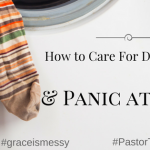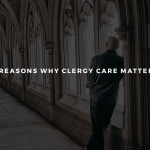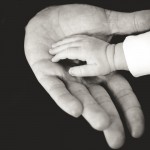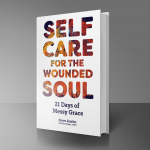I’ll never forget my first at-work panic attack.

I was a dispatcher in a 911 call center. Everyone there knew my Dad, who is a career firefighter and EMT in the same town. I didn’t know what was happening at first. In the middle of a call, my heart started racing, I felt extremely dizzy, and my hands were sweating. My chest grew tight and I couldn’t respond to the emergency caller on the other end of the line. My partner looked at me and said I was really pale. The supervisor grabbed my headset and told me to go to the bathroom.
I locked the stall door (bad idea) and pulled off my shirt. I sat on the toilet and wasn’t sure if I was going to throw up or what, but my stomach was churning.
I became so desperate that I finally laid down in the fetal position, my bare skin against the cold tile floor of the office bathroom. After an eternal 15 minutes, my symptoms began to subside and I got up and answered the door for my supervisor who was a bit shocked to see me standing there shirtless.
I was dazed.
She didn’t quite know what to say.
After I put my shirt back on, she allowed me to rest in her office for a while and we talked through what happened. Being an EMT herself, she recognized all the classic signs of a panic attack (while I had assumed I was having a heart attack at the age of 24). She sent me home for the rest of the shift and urged me to call my doctor first thing in the morning. I apologized profusely.
That job lasted about three more months. I couldn’t handle the pressure of the job or the all-night shifts. And I was humiliated by the diagnosis that my coworkers had witnessed.
Mental illness is no respecter of persons. Anxiety and depression are equal opportunity employers and they do not care what kind of day or week or year you’re having.
And along with mental illness comes shame. Shame whispers fearful things like “You can’t get your own shit together, so stop writing.” Fear deals in extremes like “always” and “never”. It tells lies like, “You are crazy and this will never get better.” It does its damndest to convince you that this is how things will always be.
But fear and shame are liars. And you don’t have to listen to them. If I have learned anything in the past four years of recovery, it’s that I can face incredibly hard days and not be destroyed or defined by them.
I’ve had many panic attacks since that fateful shift at the 911 center. Panic attacks don’t care where you are or who you’re with: at home, work, church, or driving down the road. But as miserable as they are, I have finally learned one great big truth: I don’t owe anyone an apology for my mental illness. You don’t either.
This is a selection from my brand-new book, From Pastor to a Psych Ward.
More great recovery content is just a click away!
Subscribe to get our latest content by email.













